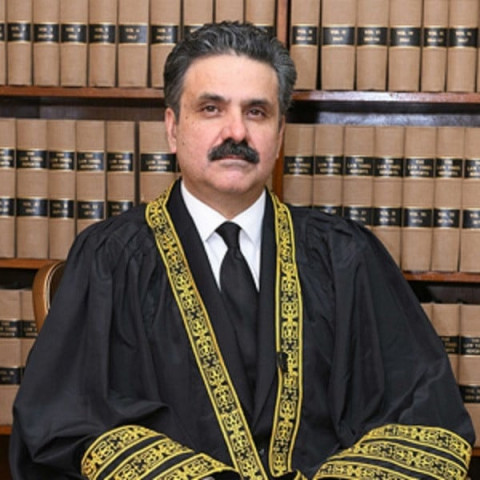Islamabad:
The Supreme Court has ordered a suspension of procedures in all cases currently pending before the alternative Dispute Resolution (ADRC) committees, which work under the administrative control of the FBR to handle issues related to taxes, especially those involving state entities.
The order came from a division bank headed by the president of the Supreme Court Yahya Afridi, which issued a two -page directive.
He pointed out that during the procedures, the Court was called that the FBR, in consultation with the Ministry of Law and Justice, was in the process of reviewing the mechanism to appoint members for ADRC.
The FBR legal member presented to the Bank that the income agency remains open to constructive suggestions regarding ADRC procedures as ordered by law.
Taking note, the court observed that it would be appropriate for the FBR to first examine the matter in detail.
Consequently, the bank ordered the FBR to consult with Shahid Jamil, lawyer of the petitioner (ZTBL), lawyer of the defendant (FBR), Amicus Curiae Sultan Mazhar Sher Khan, the attorney general of Pakistan and the Secretary, Ministry of Law and Justice.
The order also ordered that the FBR must “properly consider the opinions and contributions” of these interested parties before the end of the proposed framework to appoint ADRC members.
“A report in this regard will be submitted to this court before the next hearing date. Meanwhile, the procedures in all cases currently pending before the ADRC remains until 24.07.2025,” said the court.
Shahid Jamil, a ZTBL lawyer, said that transparency should be guaranteed in the appointment of ADRC members.
However, legal experts remain divided into the current state of the ADRC and their role in the resolution of disputes.
A lawyer who represents a state company (SOE) argued that the ADRC mechanism has proven to be “destructive” for state companies. “They are being crushed with taxes and have no remedy against the ADRC,” he said, claiming that billions of rupees in taxes were recovered by force in June without the legally required notices, simply to meet the income objectives.
“All welcome companies are being destroyed,” he added. Another lawyer said that the ADRC should work independently and without the influence of FBR to be credible.
On the other hand, Hafiz Ehsaan Ahmad, who has represented the FBR in numerous cases, defended the institution. He explained that the FBR was legally empowered to constitute ADR committees for the solution of tax disputes and to avoid prolonged litigation.
However, he acknowledged that the ADR system in Pakistan has had problems due to several structural defects, including the absence of qualified and independent referees, the lack of transparency in the composition of ADRC, the inadequate digital and institutional infrastructure and, the most important, the limited binding nature and the ability to execute the results of the ADR, particularly when they involve in fact.




